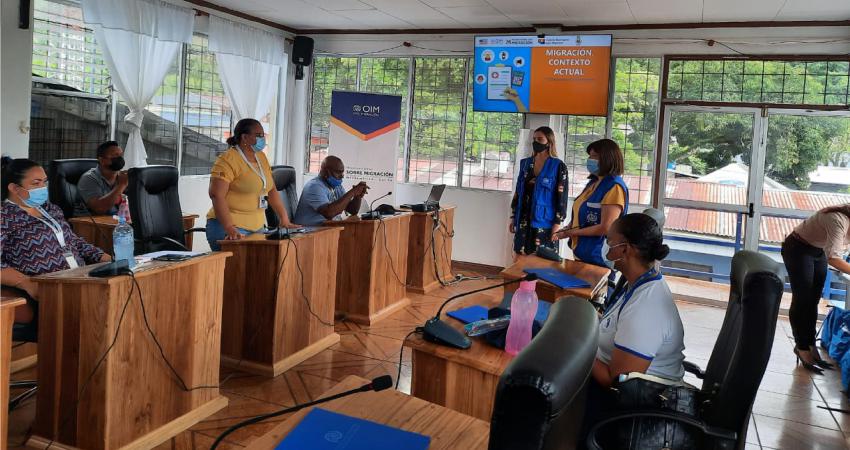Costa Rica: IOM Trained the Municipal Emergency Committee of Talamanca to Include Migrants in Crisis Situations

The International Organization for Migration (IOM) trained staff of the Municipal Emergency Committee of Talamanca, Costa Rica, on the importance of incorporating the migrant population in emergency plans and programmes.
The activity addressed the current context of national and international migration, care and protection for vulnerable groups, migrants in emergency situations, and strategies to assist and include this population.
The goal of the process was to sensitize officials on the issue and identify the benefits of involving migrants in all phases of disaster preparedness, response, and recovery. Representatives of the Municipality of Talamanca, the Ministry of Health, the Costa Rican Social Security Fund, and the Red Cross participated in the training.
“Today I learned that we have an excellent ally in the area of migration. The workshop was wonderful and urged that public institutions and IOM continue to work together to address migratory situations as comprehensively as possible” said Mauricio Solano, Medical Director of the Talamanca Health Department of the Costa Rican Social Security Fund (CCSS).
As part of IOM’s commitment to support the local government of Talamanca, a donation of 15 emergency backpacks was made to the municipality. The backpacks were fully equipped with disaster relief items such as personal hygiene products, solar lamp, whistles and blankets, among others.
“It was a very interesting and positive workshop for the plans of the municipality. We have understood and learned a little more about how we can involve migrant populations so that they can cope with an emergency” said Enrique Joseph, manager of the Logistics and Social Promotion Office of the Municipality of Talamanca.
At the end of the training, the Mayor of the Municipality of Talamanca, Mr. Rugeli Morales, thanked for the training and the donation received, noting that IOM’s support is fundamental to the development of the area.
This initiative was carried out by IOM through the Western Hemisphere Program, funded by U.S. Department of State Bureau of Population, Refugees, and Migration.